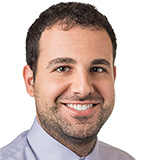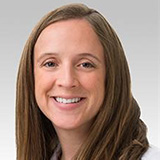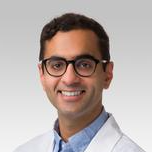Directors' Message
We welcome your interest in our neurology residency program. This is an exciting time to consider a career in neurology, and the Ken and Ruth Davee Department of Neurology at Northwestern is at the forefront of remarkable advances in basic neurosciences and clinical therapeutic interventions for neurological conditions previously considered incurable. Our goal at Northwestern is to train capable and caring neurologists who will be future leaders in the field of neurology. Residents at Northwestern will learn how to manage common and complex patients in both the inpatient and outpatient settings in every neurological subspecialty. Our program is dedicated to helping residents develop into excellent clinicians for academic or private practice careers, providing mentorship and opportunity for skilled scientists, and providing training and guidance for future medical educators. We have designed many opportunities to prepare our residents to become exceptional neurologists in any career path that suits them.
Neurology at Northwestern has a rich tradition of excellence in clinical care, research, and education. Under the leadership of Dimitri Krainc, MD, PhD, a world renowned expert in rare neurodegenerative diseases, our department remains committed to training the next generation of neurologists by providing broad expertise in all subspecialty areas of neurology and being at the forefront of the neurosciences. Our patient population is among the most diverse in Illinois. We are also proud to be consistently among the top institutions nationally for clinical and research rankings.
We pride ourselves on providing a nurturing and supportive environment while holding high expectations from the trainees and allowing for sufficient autonomy for residents to feel prepared for independent careers after training. Applicants are expected to bring a genuine interest in the field, the energy and enthusiasm to maximize opportunities for acquiring clinical experience, and the motivation to pursue their own personal development. The department upholds the highest standards of clinical expertise, founded in genuine respect and compassion for patients. This same respect for the welfare of patients dictates an educational system involving graded responsibility in which residents assume increasing roles in patient care consistent with their increasing abilities.
The department is organized into divisions that represent every subspecialty in neurology. Each division has a clinical and research core in its structure. The following programs are a sample of the resources that ensure that residents get solid training in all subspecialty areas of neurology:
- The Les Turner ALS Center, one of the largest in the country, is the leader in research in neurogenetics of motor neuron diseases. Residents participate in the Amyotrophic Lateral Sclerosis (ALS) and neuromuscular clinics and may participate in basic science and clinical research projects.
- Our inpatient Stroke and Cerebrovascular Center provides an environment for training in the latest therapeutic approaches for cerebrovascular diseases. We are also part of the NIH Stroke Trials Network (StrokeNet).
- The 24 bed Neurological Critical Care Unit is staffed by fellowship trained critical care neurologists and anesthesiologists, and functions as a multidisciplinary program that includes neurology, neurosurgery, emergency medicine, and anesthesiology trainees.
- The Comprehensive Epilepsy Center has an active clinic for complicated seizure patients and an inpatient monitoring unit, as well as a busy surgical program.
- The Sleep Disorders Center, part of the newly established Center for Circadian and Sleep Medicine, recently expanded to 16 beds, conducts 1,200 sleep studies a year and is the world leader in circadian rhythm disorders.
- The NIA funded Mesulam Center for Cognitive Neurology and Alzheimer's Disease has an active memory disorders clinic; the focus of research is brain mapping and functional neuroimaging.
- The Multiple Sclerosis Center cares for a large number of patients while conducting clinical research.
- The focus of interest of the Parkinson's Disease and Movement Disorders Centers is experimental therapeutics and surgical management. The center has an extensive clinical research portfolio. In addition to expertise in Parkinson’s disease, the center has a multidisciplinary Huntington’s disease clinic and Wilson’s disease clinic.
- The Neuro-Oncology Center, part of the multidisciplinary Lou and Jean Malnati Brain Tumor Institute, is the busiest program in the city.
- Neuro-Infectious Disease & Global Neurology, studies the clinical, radiological, immunological, histological and molecular aspects of neuroinfectious diseases.
- Our Neuro-Otology Division focuses on the diagnosis, management and quality of life for patients with neurologic and otologic causes of vestibular and auditory disorders.
- Our Comprehensive Neurology Division cares for patients with diverse neurological conditions including migraine and other headache disorders.
- The Division of Hospital Neurology is the academic home for acute clinical neurology. Our neurohospitalists lead emergency and inpatient neurology care throughout Northwestern Medicine, a system comprising 11 hospitals with over 2,000 inpatient beds and 320,000 annual emergency visits
Residency is structured to provide a balance between vigorous clinical training during the junior year and to allow substantial flexibility to pursue future career interests in clinical neurology, education, clinical or basic science research during the senior years. Residents can tailor ample elective time to focus on or explore individual career interests.
The department is well structured and prepared to train both research and clinical neurologists upholding everyone to the highest standards of knowledge. While we recognize the diversity of career paths, we believe that training in clinical research is an important part of the residency curriculum.
- Our department is a recipient of the UE5 NINDS grant for research education programs for the residents which allows interested and qualified trainees to start research training during the last year of residency and provides a year of funded research fellowship post residency
- All residents participate in the AAN-sponsored Evidence Based Medicine Curriculum
- Our department is one of the 25 NINDS funded centers that participate in the Network of excellence in Neuroscience clinical trials (NeuroNEXT consortium)
Likewise, we recognize the importance of training residents in how to be effective educators. Our residents are given a platform to gain confidence in educating others, and this is supported by workshops in which we provide residents with skills on how to be become better teachers, as well as a dedicated teaching rotation for senior residents.
Finally, we have a wide variety of conferences and didactics to provide structured learning opportunities. This includes morning report and daily noon conferences, but also a weekly neuroanatomy/basic science course which is highly regarded by the residents. We have a weekly professor rounds, where residents have the opportunity to discuss a complicated inpatient case and then go to the patient’s bedside to learn clinical examination skills from a neurology attending. At weekly multidisciplinary case conference, fellows and senior residents present interesting neurologic cases to the entire neurology faculty who localize and discuss the differential diagnosis. Faculty from other specialties are also invited to provide expert opinion and insight from their own disciplines on complex cases. Our program is committed to quality improvement (QI), and senior residents present at our departmental morbidity and mortality conference which is a safe learning space free of malignancy or judgment. Finally, we have a strong tradition of basic scientists and clinical researchers available to encourage and support residents in completing research projects or QI projects.
We think Northwestern is an amazing place to learn neurology, but even more importantly, we all enjoy working together and the camaraderie between the residents and faculty makes Northwestern a place that we love to work.
We invite you to learn more about our residency program. Please feel free to email us with any questions regarding our program, residency, or living in Chicago. We are always here to help you!
Sincerely,
Danny Bega, MD, MSCI
Program Director, Neurology Residency
Northwestern University Feinberg School of Medicine
710 N Lake Shore Dr, Room 1124
Chicago, IL 60611
phone (office): 312 503 5706
fax: 312 908 5073
email: dbega@nm.org
Katherine S. Carroll, MD
Associate Program Director, Neurology Residency
Northwestern University Feinberg School of Medicine
710 N Lake Shore Dr
Chicago, IL 60611
phone (office): 312 908 8826
fax: 312 908 5073
email: katherine.carroll@nm.org
Arjun Seth, MD
Associate Program Director, Neurology Residency
Northwestern University Feinberg School of Medicine
710 N Lake Shore Dr
Chicago, IL 60611
phone (office): 312 908 5863
fax: 312 908 5073
email: arjun.seth@nm.org
Residency Director

Danny Bega, MD, MSCI
Associate Residency Director

Katherine S. Carroll, MD
Associate Residency Director
Arjun Seth, MD
